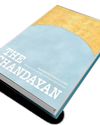Rules Of American Engagement

It was during his landmark visit to India in the year 2000 that the then US President Bill Clinton described the Indian subcontinent and the Line of Control in Kashmir as “the most dangerous place in the world today”. Clinton was voicing a sentiment deeply ingrained in American perceptions about South Asia, exacerbated by India and Pakistan coming out of the nuclear closet with back-to-back nuclear tests in May 1998. Srinath Raghavan’s well-researched book picks on this enduring element in the US narrative on South Asia as a template to examine the drivers of its engagement with our region since the birth of the American republic. In this description are embedded notions of Anglo-Saxon superiority and entitlement, that nuclear weapons are safe in responsible American hands but not in immature South Asian hands, that the leaders of South Asian countries are incapable of knowing what is good for their countries and in need either of constant hand-holding or raps on their knuckles to be kept out of mischief. The value of Raghavan’s book lies in the historical context it provides to the changing texture of US relations with the Indian subcontinent under British colonial rule and later with the successor states of India and Pakistan. There are cultural and psychological prisms that colour US perceptions and these change slowly. But there are also historical processes that compel both the US and its partners in South Asia to constantly adjust their attitudes and relations to a rapidly changing geopolitical environment. It is a complex story but in the hands of a truly accomplished historian, it is a most compelling and absorbing read.
The focus is on US interactions with undivided India before 1947 and with India and Pakistan thereafter. Afghanistan figures, but mainly because it impinges on Pakistan and for its role in the post 9/11 US war on terror.
Diese Geschichte stammt aus der June 25, 2018-Ausgabe von India Today.
Starten Sie Ihre 7-tägige kostenlose Testversion von Magzter GOLD, um auf Tausende kuratierte Premium-Storys sowie über 8.000 Zeitschriften und Zeitungen zuzugreifen.
Bereits Abonnent ? Anmelden
Diese Geschichte stammt aus der June 25, 2018-Ausgabe von India Today.
Starten Sie Ihre 7-tägige kostenlose Testversion von Magzter GOLD, um auf Tausende kuratierte Premium-Storys sowie über 8.000 Zeitschriften und Zeitungen zuzugreifen.
Bereits Abonnent? Anmelden

FINGER CLICKING GOOD
Finally there’s a Smartphone that’s fit to fire your DSLR

RAISING THE BAR
In the dynamic world of mixology, where every drink tells a story and every pour is a masterpiece, a new chapter is being concocted by some of the bars. Here are eight bars that stirred up a riot.

TRUE BLUE
BLUE MAY BE a colour traditionally associated with all things royal, but when it comes to haute horology, especially Breguet, the hue lends its own cues.

DELICIOUS DINING WITH A SIDE OF LUSCIOUS VIEWS
Bonita, a quietly charming restaurant in Goa’s Arossim brims with flavour and a stunning landscape to boot.

A YEAR OF WONDER
Globetrotting to some of the more interesting travel options that spiced the calendar year

THE TASTE TEST - Some of the more interesting restaurants launched in Asia in 2024
In the dynamic culinary landscape of Asia, Spice embarks on a gastronomic journey through a kaleidoscope of noteworthy dining spots that shone through in 2024. From cosy havens celebrating rich cultural heritage using quality local ingredients to chic spaces blending global influences with a playful vibe, each venue offers something special, whether by the beach or beneath starry skies.

TECH TALK
From a Mac that became mini to gizmoheavy watches, from smart air purifiers to intelligent TVs, these top picks defined 2024.

BOOKS TO LOOK FORWARD TO IN 2025
Book review

PEACE ABOVE ALL
Devdutt Pattanaik offers an alternative view of the Harappan civilisation in his newest book, Ahimsa: 100 Reflections on the Harappan Civilization

A Wealth of SCHOLARSHIP
For art historian Aman Nath, 2024 was a great year for art books, demonstrating the range of India's cultural wealth